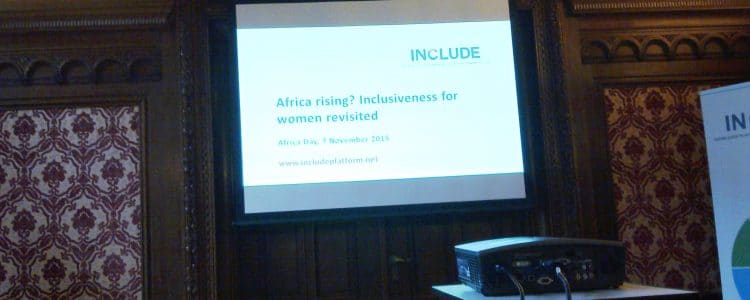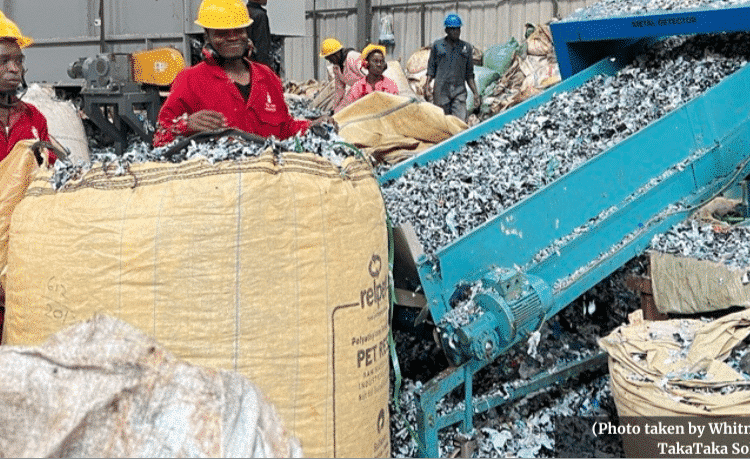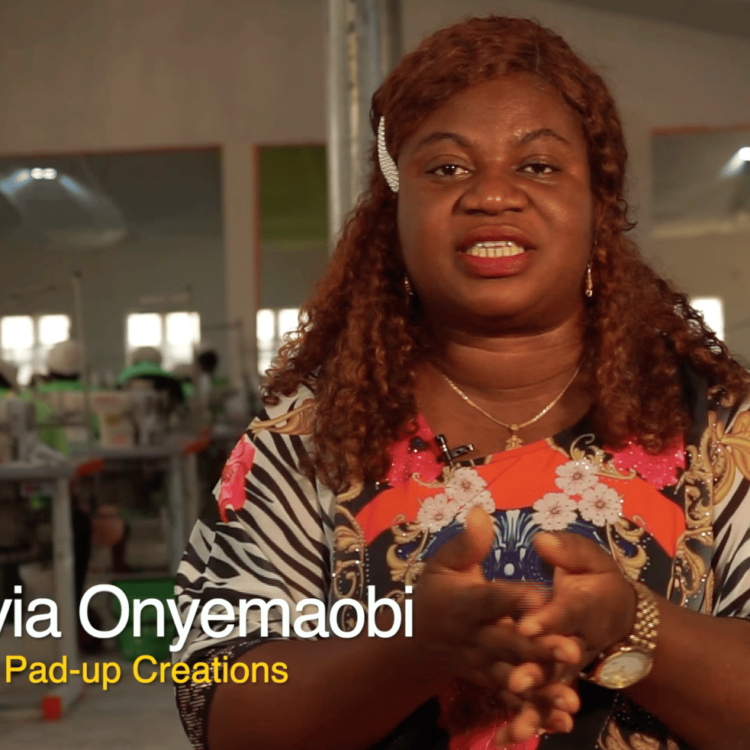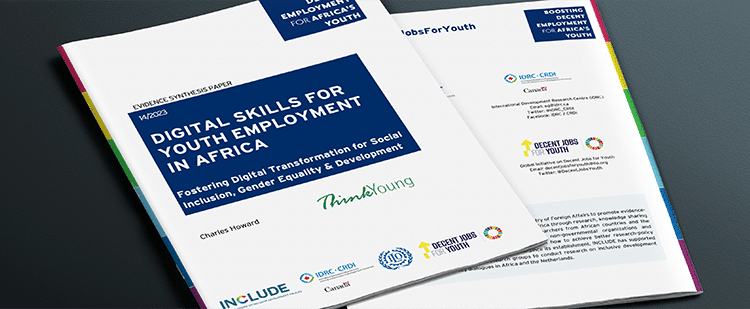
At Africa Day on 7 November, INCLUDE organized a session on ‘Africa rising? Inclusiveness for women revisited’, which was led by Karin Nijenhuis. This session addressed policies and practices to do with women’s employment, with a specific focus on the letter on inclusive development policies sent to the Dutch parliament by Minister of Foreign Trade and Development, Lilianne Ploumen, in September this year. The session kicked off with four presentations by experts from the Netherlands and Africa, followed by a brief, but powerful, discussion on the potential and pitfalls of Dutch policies regarding women’s employment.
Charles Assimwe from the Uganda Women Entrepreneurs Association Limited (UWEAL) provided insights on the reality in Uganda. He explained how governance and institutions are hindering gender equality. For instance, Ugandan laws on marriage and inheritance are unfavourable to women. Accordingly, he argued that gender policies should not only focus on the local level, but also on national political frameworks.
Uzziel Twagilimana from CNV International outlined the importance of trade unions in employability in Africa. They support women who lack the physical, financial and social capital to gain employment. Trade unions focus not only on employment, but on decent work, which means work that takes labour rights and social protection into account and provides an adequate living income.
Researchers Julie Newton (Royal Tropical Institute) and Saskia Vossenberg (Institute for Social Studies) made a joint presentation on the importance of a gender lens in Dutch development policies. One element of this lens is the ‘life cycle perspective’, which takes into account the different phases of a woman’s life when designing policies for women. In their discussion of Minister Ploumen’s letter on inclusiveness, Newton and Vossenberg argued that, despite positive elements such as the acknowledgement of inequality and exclusion as morally wrong and social protection as important, the letter does not outline a clear theory of change. Moreover, they questioned the trickle down-effect of economic growth and the letter’s sole focus on financial capital, as well as asking, more generally, which indicators for success will be formulated for gender policies. As an example, Vossenberg referred to the Dutch Good Growth Fund, which, in her view, could benefit from the application of a gender lens.
The final presentation was given by Monique Calon from the Ministry of Foreign Affairs, who responded to the issues raised in the three earlier presentations. She started by giving several examples of female entrepreneurs who were able to develop their businesses because of development policies. According to Calon, these examples show that there is no need for scepticism and that every empowered woman is an indicator that gender policies work. She emphasized the importance of a dialogue along the lines of the ‘Dutch Diamond-approach’ (involving policy-makers, academics, civil society and the private sector). According to Calon, local contexts determine the impact of local policies, but government structures provide the framework for development and should, therefore, be central to policy dialogue.
In general, the presentations and discussion raised important questions about which roles different actors should play and how these roles are addressed in Minister Ploumen’s letter on inclusiveness. It was concluded that, although the letter on inclusiveness is an important step towards more inclusive development policies, more can be accomplished.
The following documents can be viewed through the links below:
- The letter ‘Inclusive development in the Dutch programmes for Foreign Trade and Development Cooperation’ sent by Minister Ploumen to Parliament.
- The slides of Charles Assimwe’s presentation
- The slides of Uzziel Twagilimana’s presentation
- The slides of Julie Newton and Saskia Vossenberg’s joint presentation




